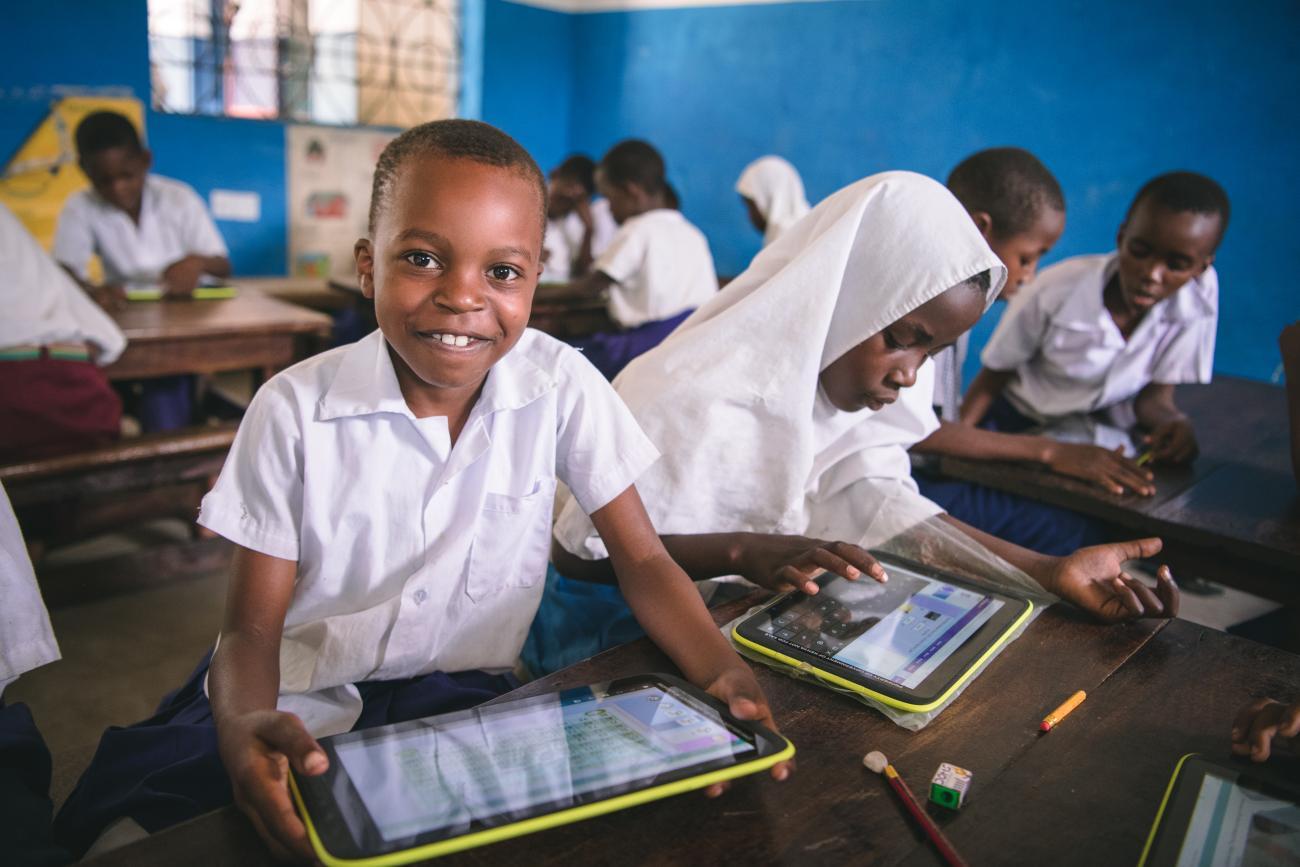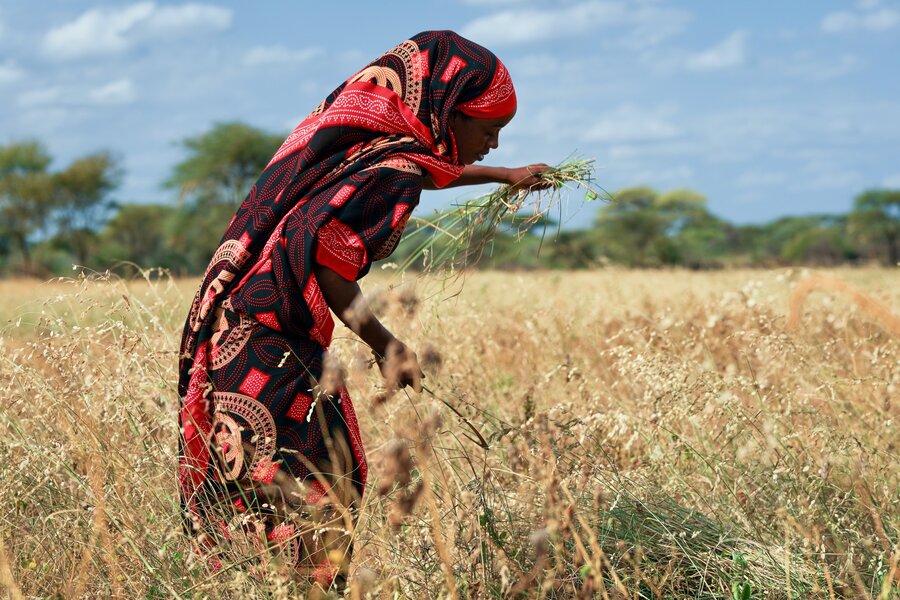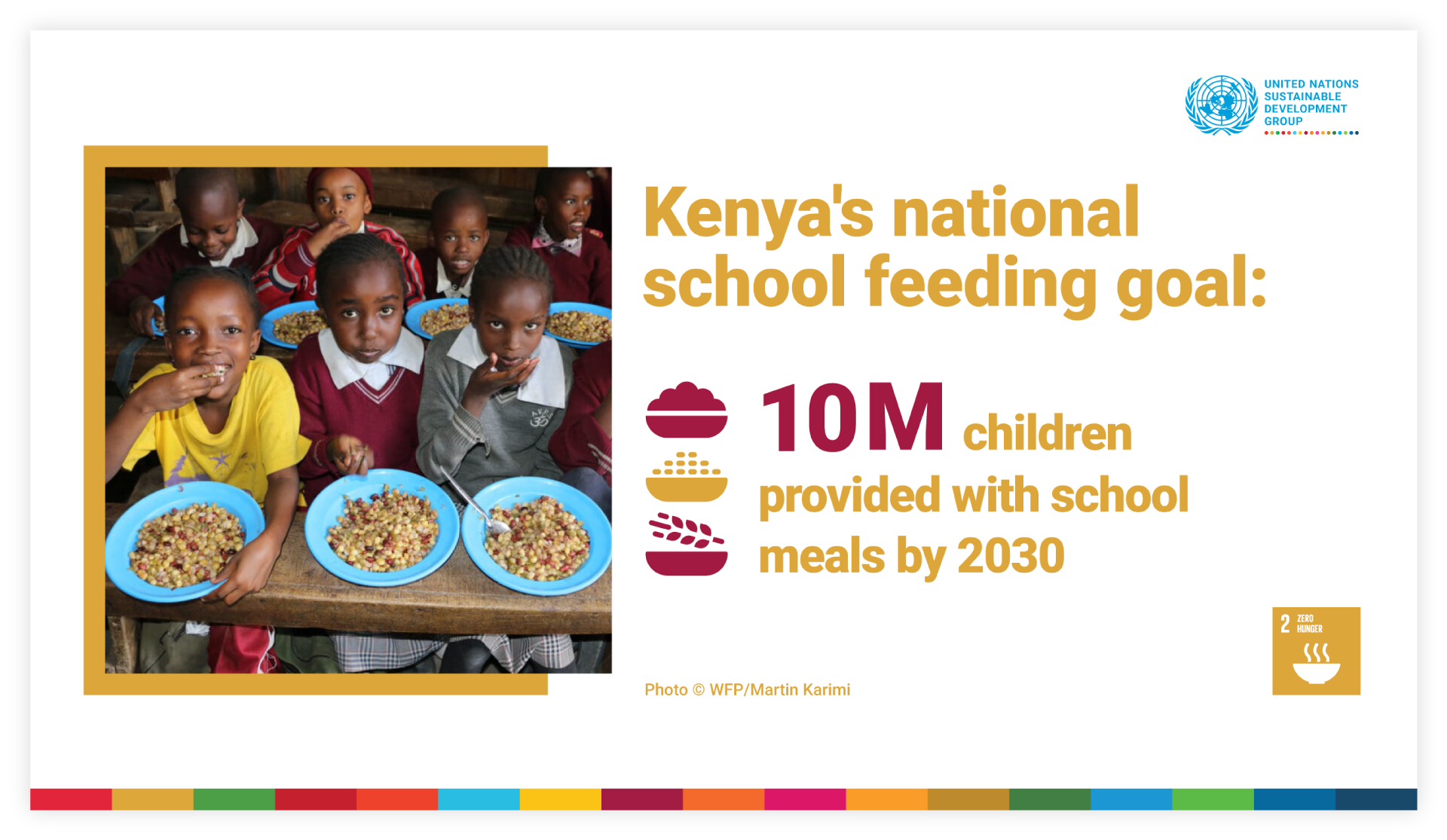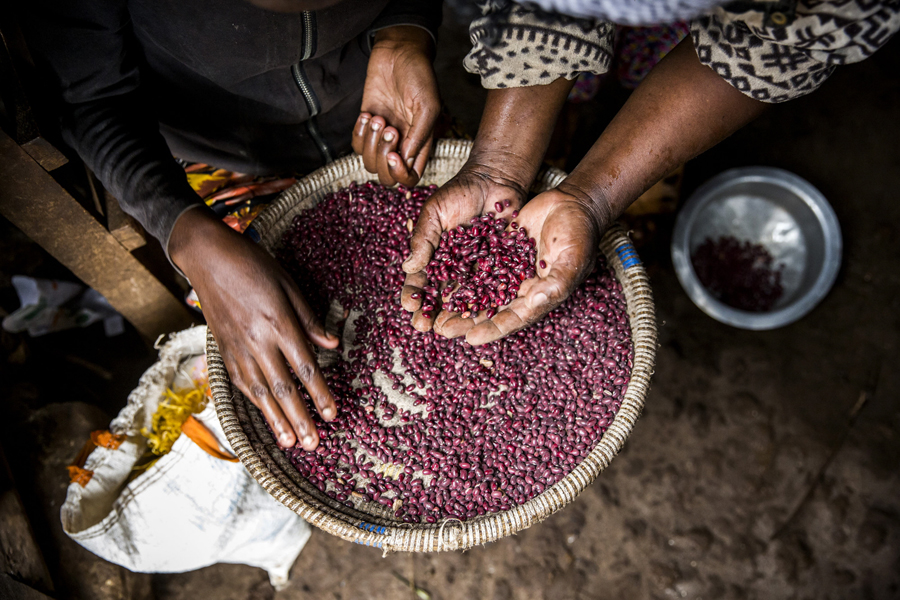From Meals to Momentum: Kenya is Turning School Feeding into a Climate-Smart Investment

UN Resident Coordinator in Kenya Stephen Jackson reflects on how Kenya’s ambitious, climate-friendly school feeding scale-up is redefining public–private partnerships. Drawing on UN-supported innovative financing mechanisms, he highlights how the initiative is turning national budgets and local markets into engines of inclusive growth.
When I visited Turkana, in the northwestern part of Kenya, I saw how a simple meal could mean far more than nourishment. It was an act of investment, a connection between farmers and school canteens, and a demonstration of how a meal can spark a chain of development impacts reaching far beyond the classroom.
Across Africa, countries are rapidly expanding school feeding, with Kenya among the frontrunners. President William Ruto’s commitment to increase coverage from 2.6 million to 10 million children by 2030 marks one of the most ambitious social investments on the continent. It is transforming what school meals can achieve, moving beyond a safety net for children, to becoming a cornerstone of climate action, local agriculture, job creation and economic resilience.
From feeding children to transforming systems
Kenya’s school-meals programme was prominently featured in the 2024 State of School Feeding Worldwide report. Kenya’s model is a springboard to keep children in schools, promote healthy diets and boost local markets and food systems – driven by a single, nationally owned programme. The country’s vision is bold: to replace carbon-heavy food imports with locally sourced meals, that feed children, provide a stable market for local farmers and boost local communities. Schools are becoming predictable buyers for smallholder farmers, especially women and youth, creating stable rural incomes and stimulating local economies.
By prioritizing nutritious, drought-tolerant crops and clean energy for cooking, Kenya’s school feeding initiative also links social protection to climate action. It embodies what integrated development looks like in practice: one policy, one programme, many outcomes. Every school meal now strengthens local farmers’ livelihoods, enhances community resilience, and advances Kenya’s progress toward all 17 Sustainable Development Goals (SDGs). Kenya’s holistic approach shows how investing in school meals can ignite broader local development.

The UN’s role as enabler
The United Nations has been a key partner in Kenya’s school feeding journey for decades. In the 1980s, the World Food Programme (WFP) supported Kenya to launch its first school meals programme. When the Government took it over in 2018, the UN shifted its focus, from implementing the programme to providing technical expertise and fostering partnerships that strengthen, expand and make the programme more sustainable.
Today, through the Joint UN Programme on Home-Grown School Feeding, we are helping Kenya turn its national priorities into real investment.
Led by my office and implemented by the World Food Programme (WFP), the Food and Agriculture Organization (FAO), and the International Fund for Agricultural Development (IFAD) with support from the Joint SDG Fund, the initiative is helping to advance the Government’s vision of turning school meals into drivers for local economic development and resilient food systems. The UN agencies combine expertise in nutrition, safety nets, agriculture, and finance to support Kenya’s expansion of the programme. This changes the lives of Kenya’s rural communities that are most food insecure and hardest hit by climate change. Together, they provide policy and systems advice on expanding school feeding, connecting farmers-to-schools as markets, local procurement and financing models to support the government scale-up school meals programmes. WFP also serves as secretariat to Kenya’s National School Meals Coalition (NSMC), which brings different ministries, counties, development partners, and investors behind the national scale-up plan.
Through this coalition, Kenya’s school meals programme has evolved into a platform for “systems finance”; an approach that blends public and private capital, builds accountability, and delivers measurable impact.

Innovative financing for sustainable transformation
Feeding 10 million children each year will require approximately USD 350 million, well beyond Kenya’s current public allocation of around USD 30 million per year. Yet Kenya’s strategy is not to replace public finance but to complement it.
The Government, with UN support, is pioneering a financing approach that blends multiple sources of capital.
- Public investment remains the anchor, with Kenya ringfencing national allocations for school feeding in its domestic budget.
- International financial institutions such as the World Bank, the African Development Bank, and the Global Partnership for Education are investing through education and poverty reduction programmes that include school meals as key drivers of inclusion.
- Philanthropic partners like the Novo Nordisk Foundation and the Rockefeller Foundation are promoting climate-friendly, locally sourced ingredients to replace carbon-heavy imports.
- Traditional supporters, including France and Germany are contributing to efforts that connect farmers to stable school markets.
- South-South partners such as Brazil and China are sharing knowledge on sustainable procurement and market access.
- Green investors are supporting the shift from 90 per cent reliance on firewood to clean cooking technologies.
- And private sector partners are linking farmer cooperatives and aggregators to predictable demand from schools.
Together, these efforts are changing the narrative. School meals are not seen anymore as a “hand-out” but are now seen as an investment that pays off many times over, with every dollar spent on home-grown feeding bringing strong social and economic returns. By using schools as reliable buyers, the programme also makes it more predictable for farmers and businesses to invest in local food and clean energy.

From funding to financing
At the heart of Kenya’s story is a simple but profound shift; from fragmented projects to integrated systems, from short-term aid to long-term investment.
The Joint SDG Fund has been instrumental in enabling this transformation, serving as the catalytic mechanism that allows UN country teams to move from funding to financing.
In Kenya, this approach is turning meals into momentum, creating full classrooms, thriving communities, greener markets, and a stronger foundation for the country’s sustainable future.
This blog was adapted from a speech by UN Resident Coordinator in Kenya Stephen Jackson, delivered during the joint meeting on Reimagining Public–Investor Partnerships: Systems Finance for Inclusive Sustainability Transformations. The session took place during the Second Committee of the 80th General Assembly and the Economic and Social Council in October 2025, and was facilitated by the UN Food Systems Coordination Hub.
Read more coordination results in Kenya here.













